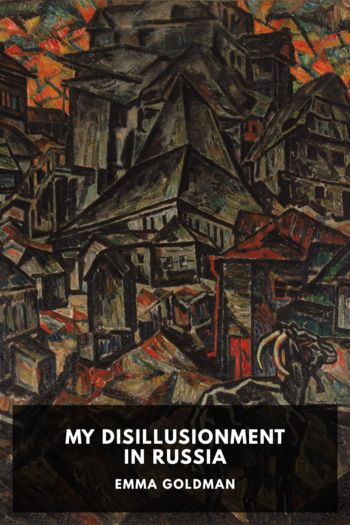Red Widow Alma Katsu (little red riding hood read aloud TXT) 📖

- Author: Alma Katsu
Book online «Red Widow Alma Katsu (little red riding hood read aloud TXT) 📖». Author Alma Katsu
And yet, it was the only solution. Her last hope.
If Theresa was to become a traitor, it wasn’t her fault. No, this was all on the Agency. They’d left her no choice. They’d lied to her face for two years, kept her cocooned in ignorance, and now held her down, sought to keep her helpless. Well, she was helpless no more. The Agency was responsible for the hatred now coursing through her veins. She would have her revenge. The enemy of my enemy is my friend.
But how to approach them? This was the conundrum. She couldn’t stop thinking about it, turning it over and over in her mind as she went through the motions of a regular day. New employees were told during orientation about agents who’d turned traitor. Their cases were dissected in painful detail, the traitors’ mistakes paraded before their eyes. The upshot was that new hires were made to believe it was impossible to contact a foreign service. Usually, would-be traitors approached the enemy’s representatives closest to hand: foreign embassies. But Langley and the FBI had the embassies and consulates in D.C. covered, or so CIA officers were told. How they did this was never explained, but Theresa imagined they held stakeouts near the entrances. You could be fired for visiting a foreign embassy without express permission. Theresa was understandably nervous. She didn’t want to be found out, caught, and arrested, before she’d even begun.
She read up on the ways that spies before her—Aldrich Ames, Robert Hanssen, Ronald Pelton—had made contact. Disappointingly, most happened overseas, where security was weaker and it wasn’t possible for U.S. authorities to watch their people all the time. Luckily for Theresa, it would be easy for her to find out about the Russians working at the embassy: it was there in the office files, the information needed to surveil the adversary. It was all at her fingertips: where Russian embassy employees lived, which schools their children went to, the bars and restaurants they liked to frequent. She was careful not to spend too much time at file cabinets to avoid drawing attention. Nonetheless, her heart raced and her palms sweated the whole time, as if she expected to be discovered. For a security officer to appear at her desk any minute with a curt, “Please come with me, ma’am.” But each time she thought about stepping away and forgetting the whole thing, she was haunted by the thought of Richard in a Russian jail, wasting away. Anything he had suffered was a thousand times worse than what she faced. And she would return to the files.
Before long, her research led her time and again to the same man. Evgeni Constantinov seemed the best candidate; listed as a low-ranking officer in the embassy’s cultural section, there was no doubt he was really an SVR officer using the position as cover. He lived in a good-sized house in Great Falls—no low-ranking Russian diplomat could afford to live there—and the clincher was his proximity to McLean. Surveillance would be a breeze. Being closer to home, there’d be less traffic to deal with. Less time away from Brian.
Having picked her target, she moved on to the next step: learning his route. It meant leaving her son with a sitter in the evenings but a necessary sacrifice, she told herself as she kissed his head and climbed into a rental car she’d left in a church parking lot near her house. After driving an elaborate surveillance detection route through northern Virginia, she headed to the Russian embassy on Wisconsin Avenue. The location had been quite a coup for the Russians, not far from the Naval Observatory where the vice president and his family lived, a lovely part of town. Every night, she parked or circled the block until she saw Constantinov’s car leave the compound, then followed at a discreet distance as he drove home. The more she saw of him, the more she was convinced Constantinov was not just an attaché in the foreign ministry. He was a little too alert and attentive behind the wheel of a splashy SUV. A little too fit, he looked like Russian military. She followed him every night for a week until she was satisfied with his consistency. He left the building at approximately the same time each night, took the same route. Apparently, he didn’t think he was being tailed by the Americans or didn’t care. There would be times when he would work late or be called away on duty, but for her purposes, she felt pretty sure that he would fit the bill.
She found one spot in particular good for an approach: there was a bottleneck on Constantinov’s route, where he had to maneuver his car from MacArthur Boulevard to the Clara Barton Parkway, around Ericsson Road. It was still city there and pedestrians milled on the street corners, waiting at bus stops and popping in and out of shops. She could do a brush pass by his car and it wouldn’t be noticeable, if it turned out the FBI had someone watching him.
Another lucky break was that Constantinov smoked, a habit that was slow to die out among Russians. He often drove with his windows down, plumes of smoke rising above his car as he sat in traffic. He drove a massive SUV, surely an embassy vehicle, and it sat high on the road. She practiced making passes in her garage where no one would see her, walking by and aiming for a high shelf approximately the height of the SUV’s door, until they were perfectly smooth. Undetectable.
Her hands shook as she wrote the note: I am a CIA officer with information that will be of interest to you. Followed by instructions for a rendezvous if they wanted to meet. The chances of follow-through, she knew, were almost nil. They would suspect the whole thing was a trap, albeit a clumsy one.





Comments (0)